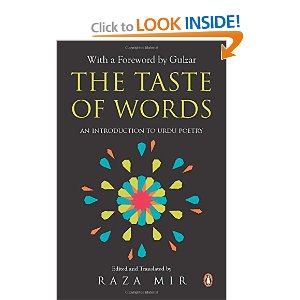There was a time when young children in small Northern towns, regardless of their religious denominations, learnt Urdu. And when they grew up, many young men like my father could recite the Gita and write and read Urdu as if it was the most natural thing to do.
**
The generation after his, caught up in the regimentation of a more modern education system, did not study Urdu, or even Sanskrit. The only way you got a taste of Urdu was through a ghazal cassette that slowly grew on you and then became a doorway into the world of Ghalib, Mir, Daag, Jigar. The 50s and 60s were exceptionally fecund for poetry in India because even those who had never read a verse in Urdu were exposed to the brilliance of Kaifi, Sahir, Shakeel Badayuni’s film songs.
**
These men were giants of Urdu literature who without meaning to, educated the masses in the simple nuances and the depth and emotional range of Urdu.
**
Then came ghazal singers like Begum Akhtar who popularised poets from across the border as also Indian voices like Sudarshan Fakir. Ghazal legends like Ghulam Ali, Farida Khanum and Mehdi Hassan popularised the works of Ibne Insha, Mohsin Naqvi, Faiz, Fayyaz Hashmi and more.
**
Jagjit Singh revolutionised ghazal because he made it accessible to even a generation unfamiliar with Urdu. He mainstreamed Ghalib by creating an unforgettable sound-track with Gulzar for Doordarshan in the 90s. And popularised modern Indian poets like Bashir Badr and even legends like Ahmed Faraz from across the border. In another path-breaking epic Kahkashan on DD (1991-1992), he teamed up with Ali Sardar Jafri to bring alive the poetry of modern masters like Hasrat Mohani, Jigar, Josh, Majaz and Firaq.
We can ofcourse not discount the contribution of Gulzar and later Javed Akhtar in keeping Urdu poetry or some form of it at the centre of our cinematic music. In retrospect, that is possibly the best way to become acquainted with a language. To sing it, to hear it being spoken by the masters, to learn it without really being conscious of how you are learning it. But at a time when ghazal no longer has a charioteer like Jagjit Singh, when Gulzar and Javed Akhtar are writing less and less for films, where will the uninitiated go to know more? I am not so sure if translations work. The cadences of Gulzar, though valiantly translated by Pavan K Varma, get lost in the flat tonalities of English. But then something is better than nothing and so a recent book, The Taste Of Words by Raza Mir (Penguin) with a foreword by Gulzar attempts to introduce Urdu poetry to those who are interested but don’t know where to start. Mir undertakes a breathtakingly diverse journey resonating with the pioneering voices of Khusrau, Quli Qutub Shah to the all time greats like Zauq and Ghalib to the moderns including Gulzar and even a Parveen Shakir, a delicate yet strong feminine voice from Pakistan. It is a staggering attempt to encapsulate the very essence of Urdu poetry and hopefully will inspire many readers to discover the language in all its purity.
Reema Moudgil works for The New Indian Express, Bangalore, is the author of Perfect Eight, the editor of Chicken Soup for the Soul-Indian Women, an artist, a former RJ and a mother. She dreams of a cottage of her own that opens to a garden and where she can write more books, paint, listen to music and just be silent with her cats.








 with
with